Part 4
Welcome to part 4 - A Comparison Between the Boiling of a Frog and the Proposed SC State Legislative Bill S-285, Summary: Providing Academic Choice in Education (PACE/ACE)
So, why is the bill tied to accreditation membership?
Accreditation membership turns into Accreditation, period!
What is the purpose of any school obtaining a “membership” to an accreditation organization? Think of an accreditation “membership” like a trial-period for a contracted relationship between any two given parties. Regarding a school’s accreditation membership status, this contract is initiated by a school when they choose to fill out a membership application with a nonprofit accreditation organization. This relationship agreement is established by the accreditation organization of which an applicant school must conform to. It’s within this paid for agreement contract that private/independent/religious schools must submit to the desires of the organization they are joining. Shall the school not live up to the provided regulations set forth by an accreditation membership agreement, the school may no longer maintain access to the benefits of the accreditation membership status granted by the organization they pursued.
According to South Carolina State Regulation of Private and Home Schools, under the heading of “Private Schools” it states:
South Carolina State Regulations -- Office of Non-Public Education (ONPE)
Accreditation: optional
Registration: no requirements
Licensing: no requirements
Approval: optional “
In addition, it goes on to state:
“Teacher certification: No state policy currently exists.
Length of School Year and Days: No state policy currently exists.
Curriculum: No state policy currently exists.”
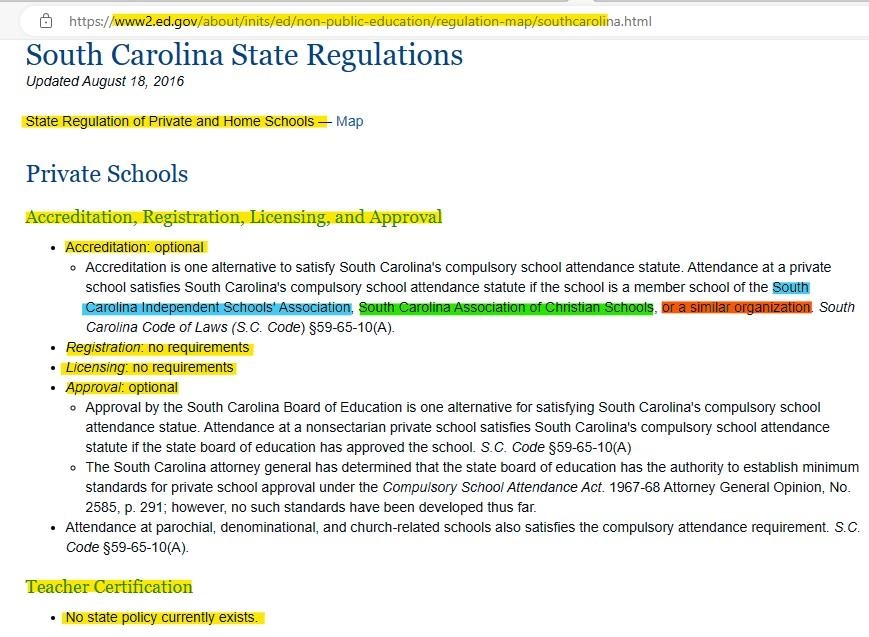
Accreditation and/or accreditation membership is NOT mandated by the state of South Carolina to operate any private/independent/religious school.
To confirm this is true, you can simply check with one of the state’s preferred accreditors, known as the South Carolina Association of Christian Schools (SCACS). SCACS and the South Carolina Independent School Association (SCISA) are both referenced in SC law Title - 59 – Education.
Code of Laws - Title 59 - Chapter 65 - Attendance Of Pupils (scstatehouse.gov)
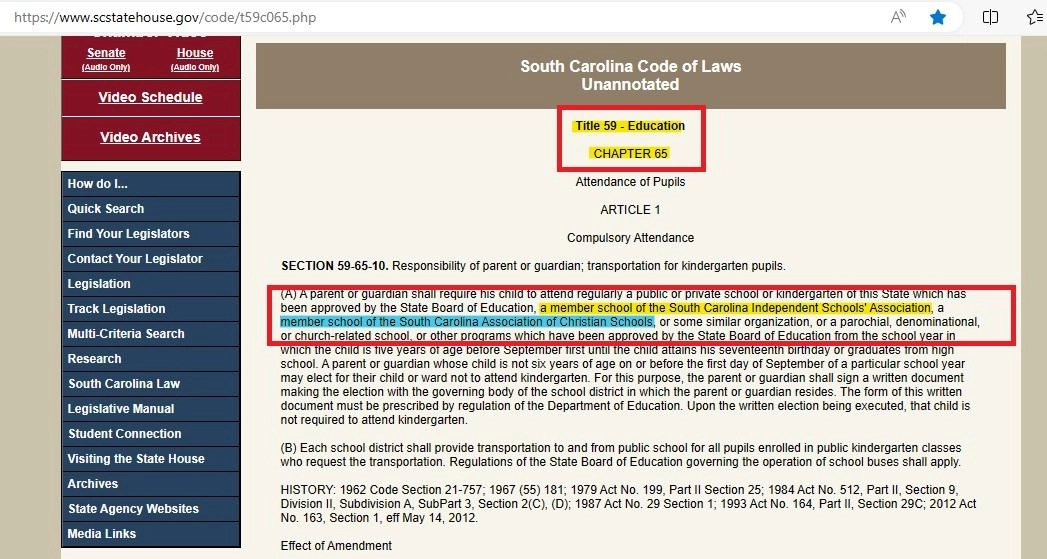
The screenshot provided below is a page from the SCACS website.
School Accreditation | SCACS (christianeducation.org)
It states:
“The Voluntary Accreditation of Christian Schools (VACS) is a means whereby the South Carolina Association of Christian Schools can assist member schools in the building of stronger Christian schools. Accreditation is voluntary. It is not an attempt to license or regulate. The VACS is never viewed as a governmental accrediting program.”
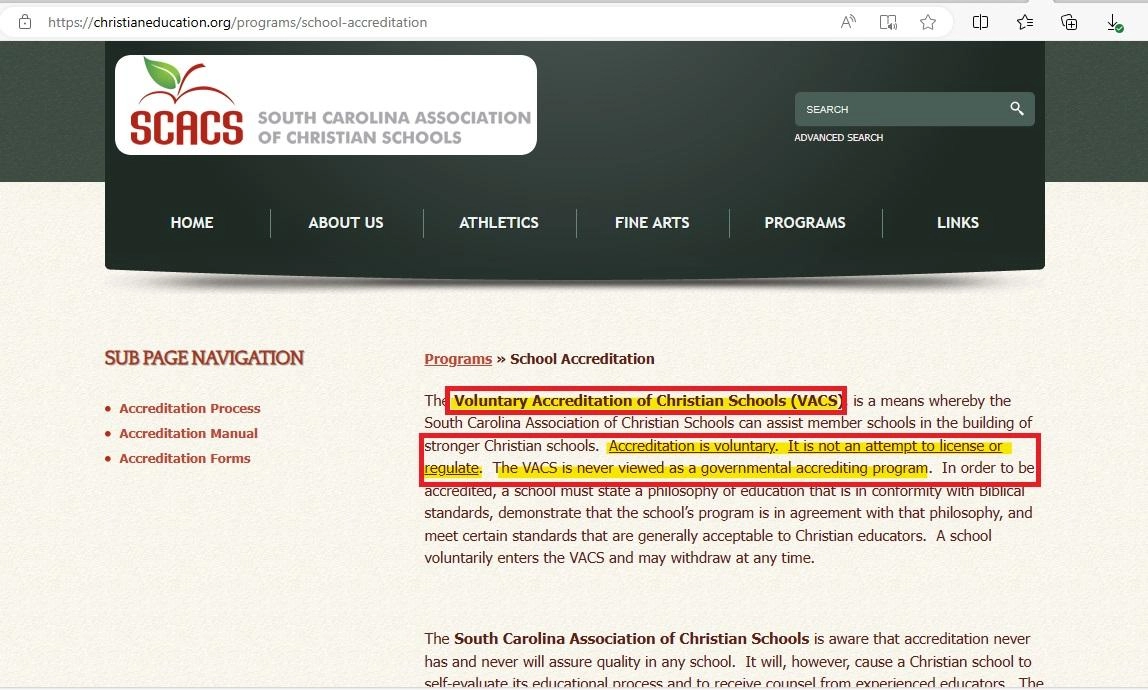
As you can see and explore for yourself, even an accreditor associated with South Carolina’s education law (Title - 59) confirms that private schools have the option as to whether to seek an accreditation membership or to seek an approved accreditation status from any accreditation organization, but it is not mandated.
It’s also important to note that “VACS is not a governmental accrediting program”.
Obtaining accreditation membership is often the first step a school takes to pursue an accreditation status from an accreditation organization. Should a private/independent/religious school choose to become accredited, depending on which accreditation association a school selects and volunteers to join, the school is given a time frame by the organization for which their membership benefits expire. The only way to maintain these benefits and the status of being accredited is for the applicant school to agree to go further cement the associations full accreditation procedures, processing and to consent to subjecting their students to several standardized tests and/or IQ tests and a considerable amount of student data sharing.
Below you can see two examples of how membership of an accreditation organization leads to a timeline of obtaining full accreditation status of a private/independent/religious school.
The South Carolina Independent School Association, commonly referred to as SCISA, was incorporated by the State of South Carolina in 1965 to keep several independent schools segregated by race during the country’s period of the desegregation usage of schools.
Home - South Carolina Independent School Association (SCISA)
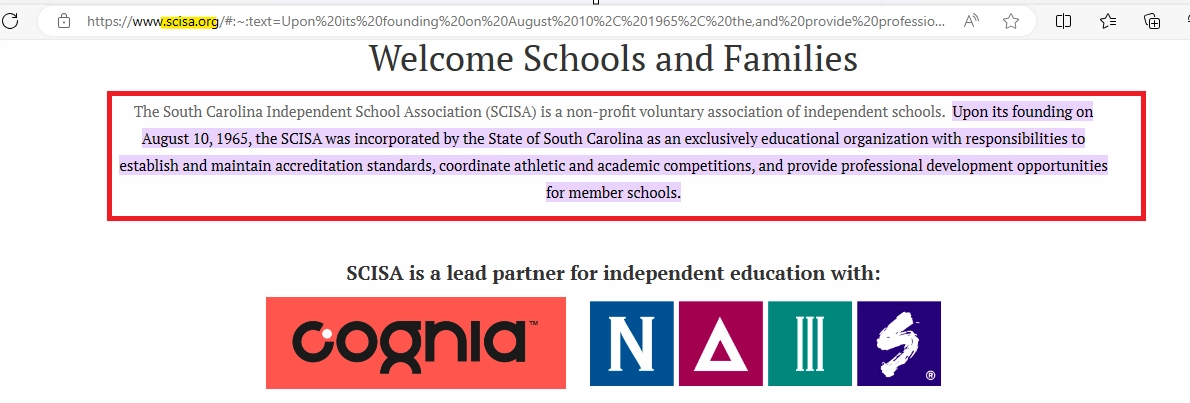
SCISA offers several types of accreditation memberships. The image below is one of their Introduction to SCISA Accreditation packets that are provided to interested schools.
It states: “All member schools must pass minimum SCISA accreditation standards within 18 months of being approved for membership by the Board of Directors.”
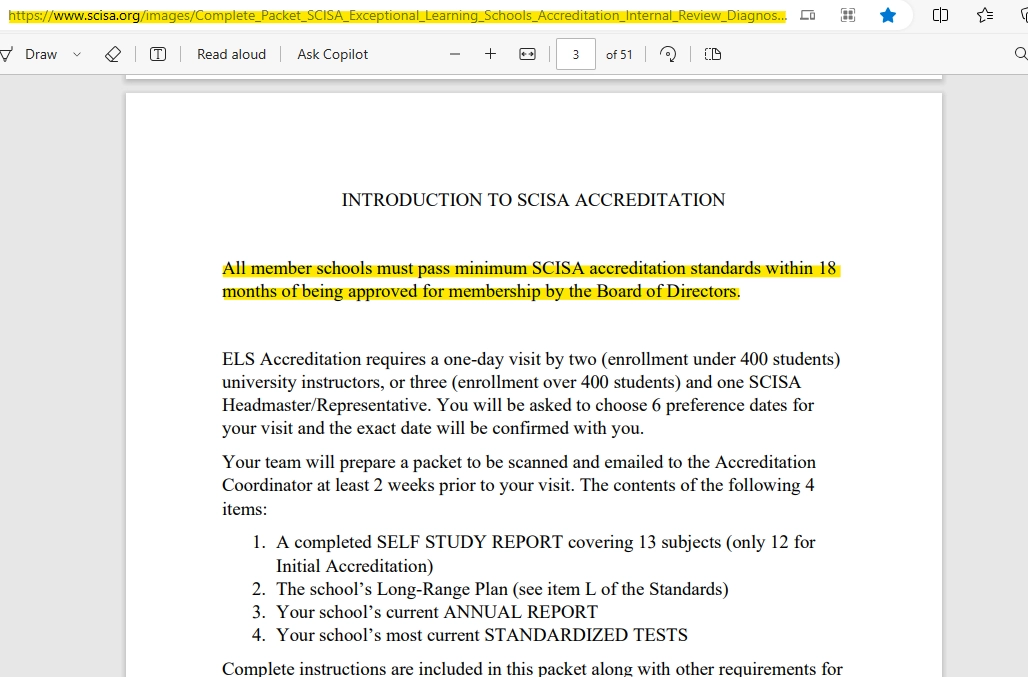
SCISA’s by-laws confirm each school must pass minimum SCISA accreditation standards within 18 months of being approved for membership by the Board of Directors.
By-laws - South Carolina Independent School Association (SCISA)
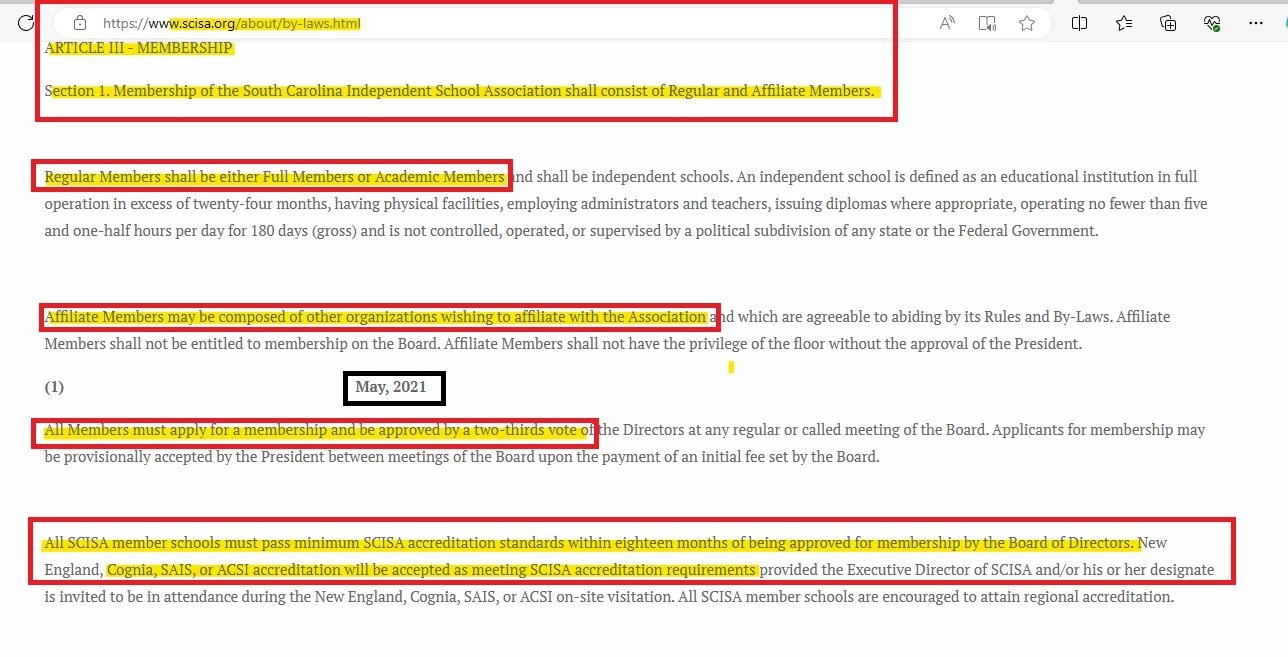
The South Carolina Association of Christian Schools, commonly referred to as SCACS, also provides literature to show a timeline of how long an accreditation membership is valid for.
PROPOSED SCACS LEVELS OF MEMBERSHIP (christianeducation.org)
Here you can see it states, a school may hold a Level 1 membership candidate status for a maximum of 3 years.
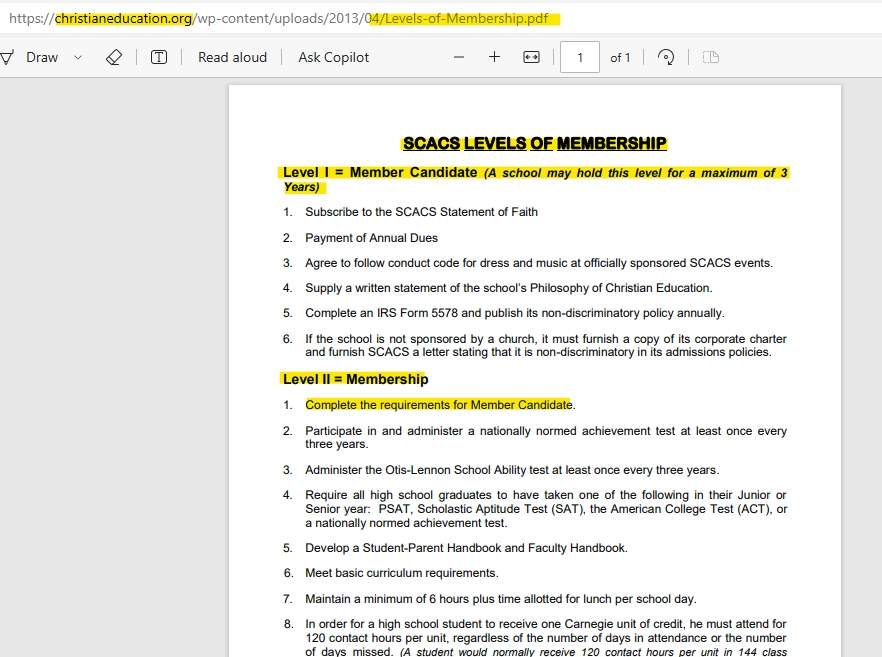
So, why am I talking about and showing examples of the school accreditation process?
To be continued…
Part 1, Part 2, and Part 3




Sign Up!
Subscribe to ConservaTruth's Email Newsletter for curated insights on South Carolina's legislative activities and conservative viewpoints, delivered straight to your inbox! With vetted and easy-to-understand information, our newsletter empowers you to become an informed and engaged citizen, actively participating in safeguarding our cherished Constitutional values. Don’t miss out on crucial updates—join our community of informed conservatives today!

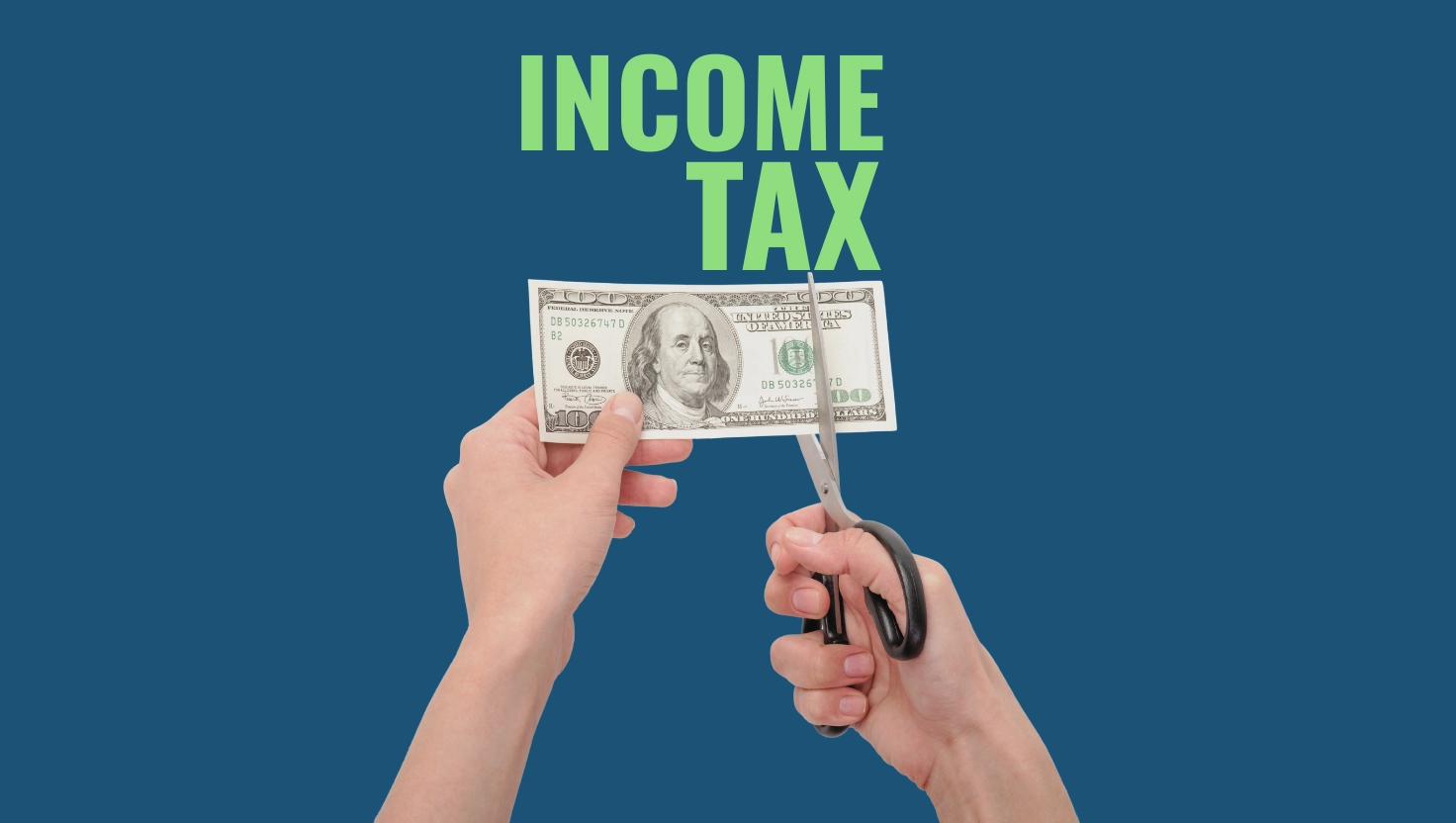
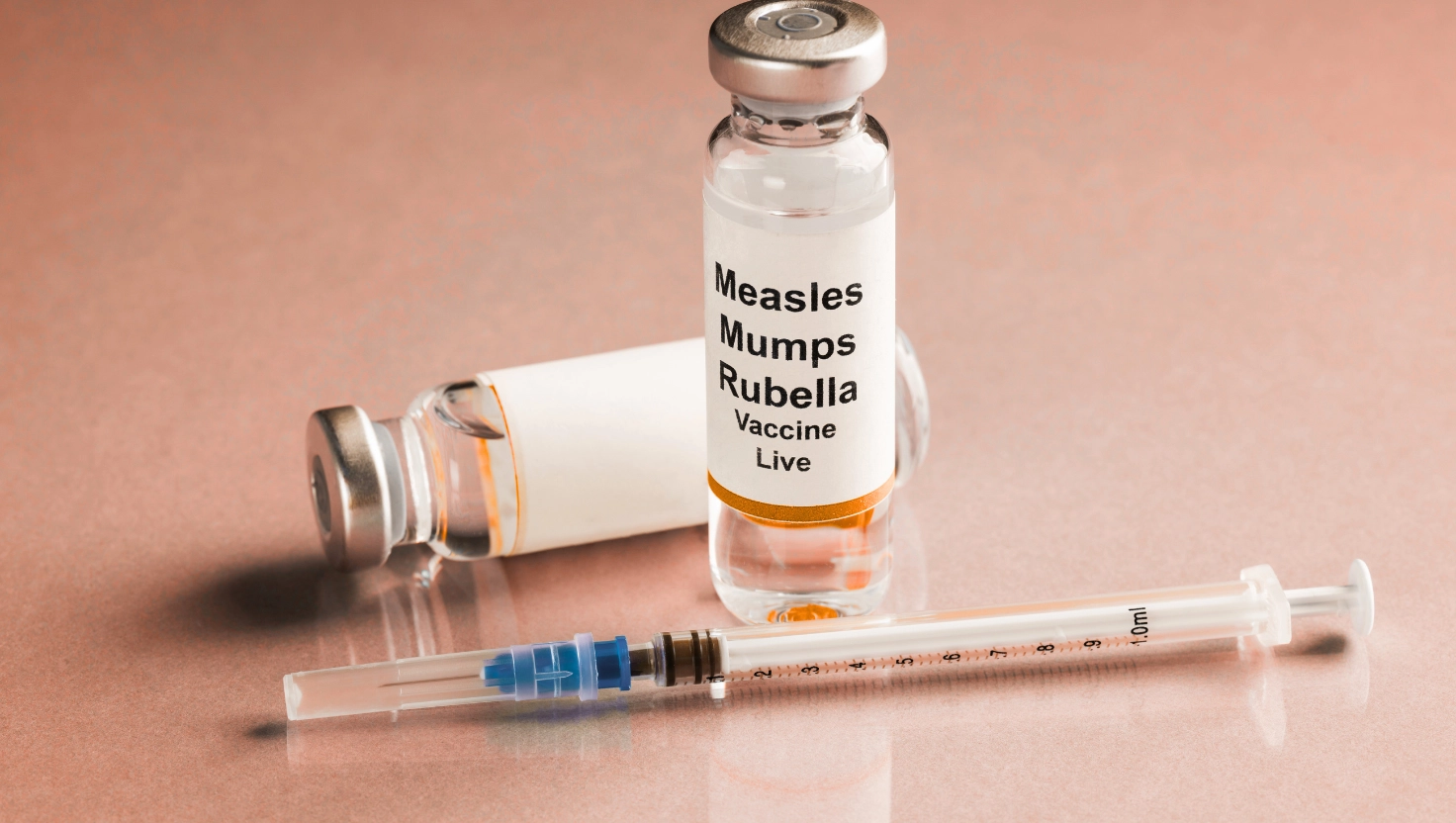
Comments